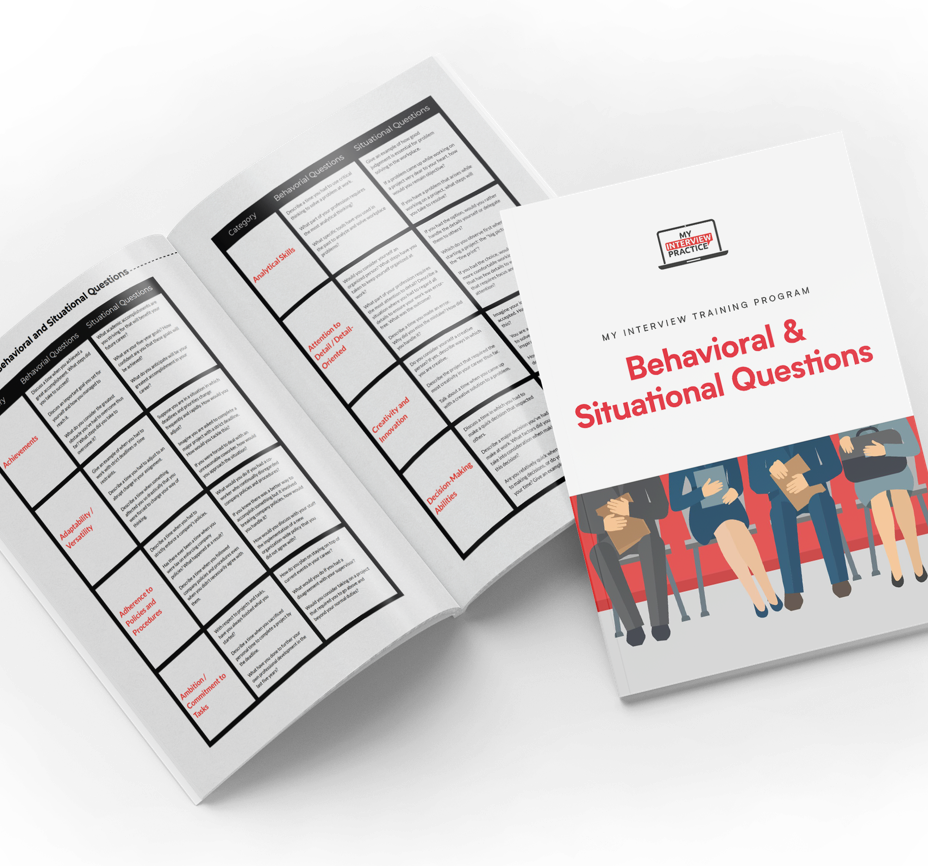Key Tips For Negotiating A Job Offer

You’ve polished your resume, aced the interviews, and finally, you hear the words that make all of the hard work worth it: “We’d like to offer you the job.” While it’s tempting to jump for joy and accept on the spot, it’s crucial to remember that this is merely the beginning of the final, and perhaps most crucial, phase of your job search: negotiating the job offer.
Navigating this stage correctly can have a significant impact on your career trajectory, not just in terms of salary but also in work-life balance, career growth, and job satisfaction. So, we’d love to guide you through the labyrinth of negotiating a job offer.
In this guide, you’ll learn how to prepare for negotiation, evaluate offers, use proven tactics, avoid common mistakes, and make your final decision with confidence. Ready? Let’s get started.
Step 1: Know Your Value & Do Your Homework
Before diving into the salary negotiation process, it’s crucial to arm yourself with the right knowledge. Start by researching market salary benchmarks for the role you’re being offered. Websites like Glassdoor and Payscale provide valuable insights into typical salaries and salary ranges, helping you set realistic salary expectations and avoid underselling yourself.
Next, conduct a thorough self-assessment to evaluate your worth in the job market. Audit your skills, accomplishments, and certifications to understand what makes you an asset to potential employers. Have you led teams, managed large projects, or exceeded sales targets in previous roles? Quantify these achievements whenever possible, as numbers speak louder than words.
Additionally, consider the impact of geographic location and cost of living on salary ranges. Knowing how these factors affect your market value will allow you to negotiate a job offer that aligns with your needs.
Timing is also key in the negotiation process. Your leverage is strongest after the employer has made an initial offer but before you’ve accepted it. Use this window to negotiate effectively, ensuring you secure a compensation package that meets your financial needs and career goals.
Step 2: Assess the Full Offer (Not Just Salary)
When you receive a job offer, it’s tempting to focus solely on the salary. However, a comprehensive evaluation of the offer is crucial to ensure it aligns with your career goals and personal values. Start by examining the salary and benefits package. Look beyond the base salary to consider health insurance, retirement plans, signing bonuses, stock options, and other additional compensation or perks like tuition reimbursement and professional development opportunities.
Company culture and growth opportunities are equally important. A supportive and inclusive work environment can significantly impact your job satisfaction and overall well-being. Investigate the potential for career advancement within the organization to ensure there is room for growth and development. Flexibility in the role, such as remote work options, can also contribute to a better work-life balance.
Consider practical aspects like the geographic location and commute, as these can affect your quality of life. Additionally, assess the team dynamics and the onboarding process. Understanding the dynamics of the team you’ll be working with and having clarity about your role and responsibilities will help you determine if the position is a good fit.
By evaluating these factors holistically, you’ll be able to make an informed decision and find a job offer that truly aligns with your career goals and values. Remember, most employers expect you to take time to consider the offer, so don’t rush this important decision.
Step 3: Use Proven Negotiation Techniques
Starting with Gratitude
When you finally sit down to negotiate, whether it’s face to face or over a call, always begin with a note of gratitude. Thank the employer for the offer and express enthusiasm about the role. This positive approach sets the tone for an amicable discussion, making it more likely that both parties will leave satisfied. Engaging directly with the hiring manager can also help in effectively conveying your requirements and negotiating terms.
Using Silence Strategically
In negotiation, silence can be golden. After stating your counter-offer or a request for a particular benefit, allow a pause in the conversation. This may prompt the employer to fill the silence, often with a concession or further explanation that can be beneficial for you.
Leverage the “If-Then” Technique
This tactic involves making your request conditional upon a benefit to the employer. For example, “If you can offer a sign-on bonus, then I can start two weeks earlier than planned.” This not only adds a sweetener to your request but shows you’re thinking of the company’s needs as well.
Ask for Everything at Once (Avoid Piecemeal)
Rather than negotiating each term one by one, aim to discuss all of your terms at once. This holistic approach allows both parties to see the full picture and make trade-offs, creating a more comprehensive and satisfactory agreement for both sides.
Step 4: Reinforce Your Value During the Negotiation Process
Negotiating a job offer isn’t just about asking for more. It’s also about presenting a clear case for why you’re worth the investment. As the hiring process enters its final phase, it’s important to remind the employer why you’re the best candidate for the position. Don’t assume that just because an initial offer was extended, your work is done. Continue to highlight the specific skills, accomplishments, and experience that set you apart.
Be ready to discuss how your qualifications directly align with the position title and the organization’s needs. Reference outcomes from past roles, whether that’s leading cross-functional teams, delivering on complex projects, or saving previous employers time and money through better business administration. When possible, quantify your impact. This helps you anchor a higher salary or stronger benefits package in concrete value, rather than vague expectations.
During the negotiation, use the conversation as a chance to clarify the role, expectations, and what success looks like in the first 90 days. This not only signals that you’re thinking long-term, but also gives you better context for setting salary requirements or requesting additional compensation.
If the employer is hesitant to adjust the base salary, ask about other negotiable elements such as signing bonuses, professional development budgets, more flexibility in the start date, or tuition reimbursement. These benefits can bridge the gap when there’s less room in the budget for a higher salary.
Reinforcing your value also creates a more balanced dynamic. Most companies want to invest in someone who’s invested in them. Framing the conversation around what you bring to the table, rather than just what you’re asking for, can make the negotiation feel more collaborative and outcome-oriented.
In short, use the negotiation process to reaffirm why you’re worth what you’re asking for.
Step 5: Compare Multiple Offers Strategically
If you’re fortunate enough to receive offers from other employers, take the opportunity to compare each job offer side by side. Begin with the job title and responsibilities to see how each position aligns with your career goals, skill set, and long-term interests. While one role might offer a higher salary or larger signing bonus, another could offer better professional development opportunities, a more flexible work arrangement, or a more supportive company culture.
It’s also important to factor in geographic location and cost of living. A higher base salary in a city with an elevated cost of living might provide less room for financial freedom than a slightly lower salary in a more affordable area. Consider the full compensation package, including additional perks such as tuition reimbursement, health care coverage, stock options, and retirement plans.
When weighing your options, think about the long-term trajectory. Does one offer provide better career advancement opportunities? Is the hiring manager someone who seems invested in mentoring and team growth? These details matter just as much as the numbers on paper.
Don’t be afraid to ask for a time frame to make your decision. Most employers expect candidates to take at least a few days to evaluate an initial offer, especially when there are multiple opportunities on the table. Express appreciation for the offer and communicate clearly about your decision timeline. This keeps the hiring process professional while allowing space to make an informed choice.
Step 6: Close the Deal
Summarize and Confirm the Offer Details
As you reach the end of the negotiation process, it’s essential to summarize the key points and confirm the offer details with your potential employer. A simple statement like, “To summarize, we’ve agreed on a salary of X with Y benefits, and you’ll be sending me a revised offer by the end of the week. Is that correct?” ensures everyone is aligned and minimizes misunderstandings.
Get It in Writing
Once a verbal agreement is reached, request all negotiated terms in writing. This step is crucial as it protects both parties and clarifies the commitments made. Reviewing the written offer allows you to examine any clauses or conditions that may not have been discussed during negotiations.
Take a Final Step Back to Assess
Before formally accepting or declining the offer, take a moment to evaluate all aspects of the offer. Consider not only the financial elements but also work-life balance, career growth opportunities, and alignment with your long-term goals. This final assessment ensures that your decision is well-informed.
Formally Accept or Decline
Once you are confident in your decision, proceed to formally accept or decline the offer. Effective salary negotiation can secure a compensation package that meets your needs and expectations, setting the stage for a successful career move.
Avoiding Common Mistakes in the Negotiation Process
Neglecting Company Culture
While salary and benefits are essential, it’s equally important to consider how well you align with the company culture. Your overall job satisfaction and happiness largely depend on this fit. Focusing solely on financial aspects might lead you to a high-paying position that doesn’t fulfill you personally. Remember to evaluate stock options and other elements of the compensation package, particularly if direct salary increases are not feasible.
Over-Negotiating Risks
Finding the balance between negotiating effectively and pushing too far is crucial. Requesting too many adjustments can portray you as demanding or difficult, potentially leading the employer to withdraw the offer. Recognize when it’s time to accept a favorable deal and avoid overextending the negotiation process.
Avoiding Piecemeal Negotiations
Instead of addressing each term separately, aim to discuss all of your terms collectively. This comprehensive approach enables both parties to view the full scope and make necessary trade-offs, resulting in a more complete and satisfactory agreement for both sides.
When and How to Make Concessions
In any negotiation, you’ll likely have to make some concessions. When you do, use the “Yes, but…” technique to get something in return. For example, “Yes, I can accept a lower base salary, but can you offer an annual performance bonus?”
Before entering the negotiation, know what your deal-breakers are. Whether it’s the salary figure, remote work days, or any other term, be clear on what you can and can’t compromise on. Having a predetermined walk-away point will help you negotiate more confidently and decide when it’s time to decline an offer that doesn’t meet your minimum requirements. If an employer cannot meet your request for a higher salary, consider negotiating for other benefits or compensation options.
The Art of the Deal Close

via Tenor
Confirming the Next Steps
At the end of the negotiation, it’s a good idea to summarize the key points and confirm the next steps with your potential employer. This could be as simple as saying, “Just to summarize, we’ve agreed on X salary with Y benefits, and you’ll be sending me a revised offer by the end of the week. Is that correct?” This helps to ensure everyone is on the same page and minimizes the chances of any misunderstandings later on.
Getting It in Writing
Once you’ve reached a verbal agreement, request to see all of the negotiated terms in writing. This is not just a formality; it protects you and ensures both parties are clear on the commitments made. It also gives you the opportunity to review the fine print which may have clauses or conditions that weren’t discussed during the negotiation.
Making Your Final Decision
Before accepting an offer, take a step back and weigh all of the variables. Consider not just the financial aspects but also work-life balance, career growth opportunities, and how this role aligns with your long-term goals. Once you’re confident with your decision, formally accept or decline the offer.
How My Interview Practice Can Help
Negotiating a job offer is as much about preparation as it is about the conversation itself. By understanding your worth, researching the industry standards, and preparing well-thought-out counter-offers, you’ll be in a strong position to negotiate a job offer that meets not just your financial needs but also aligns with your career goals and personal lifestyle.
If there’s one key takeaway, it’s this: you’re not just negotiating for your immediate future. You’re setting the precedent for your long-term career trajectory. Therefore, make sure to be thorough, thoughtful, and strategic in your approach.
Ready to negotiate like a pro? Start by practicing your interview skills with My Interview Practice to strengthen your offer. Our platform offers valuable insights and feedback to help you excel in your job interviews and, by extension, your job offer negotiations.
The key to nailing your interview – practice, practice, practice.
As with anything, practice makes perfect. The most common ways to practice are with in-person mock interviews or a list of questions. While these options are a great place to start, they can leave a lot to be desired.
Practicing with In-Person Mock Interviews and Question Lists
One way to get valuable interview practice is to set up in-person mock interviews. Unfortunately, they can be somewhat inconvenient. You have to find someone to conduct the mock interview, and schedule a meeting every time you want to practice.
Question lists offer a much more convenient way to practice interviewing. Unfortunately, they do little to recreate actual interview pressure. In a real interview you’ll never know what’s going to be asked and this is exactly what can make interviews so stressful.
Interview Simulators – The best of both worlds.
With interview simulators, you can take realistic mock interviews on your own, from anywhere.
My Interview Practice offers a dynamic simulator that generates unique questions every time you practice, ensuring you're always prepared for the unexpected. Our AI-powered system can create tailored interviews for any job title or position. Simply upload your resume and a job description, and you'll receive custom-curated questions relevant to your specific role and industry. Each question is crafted based on real-world professional insights, providing an authentic interview experience. Practice as many times as you need to build your confidence and ace your next interview.
| List of Questions |
In-Person Mock Interview |
My Interview Practice Simulator |
|
|---|---|---|---|
| Questions Unknown Like Real Interviews | |||
| Curated Questions Chosen Just for You | |||
| No Research Required | |||
| Share Your Practice Interview | |||
| Do It Yourself | |||
| Go At Your Own Pace | |||
| Approachable |
Our interview simulator uses video to record your responses, and recreates the pressure you would feel in a real interview. This also allows your to see how you perform and perfect your responses. You can then share your responses with colleagues and mentors so that you can get valuable feedback.
Get the free training guide.
See the most common questions in every category assessed by employers and be ready for anything.
Get the Guide




